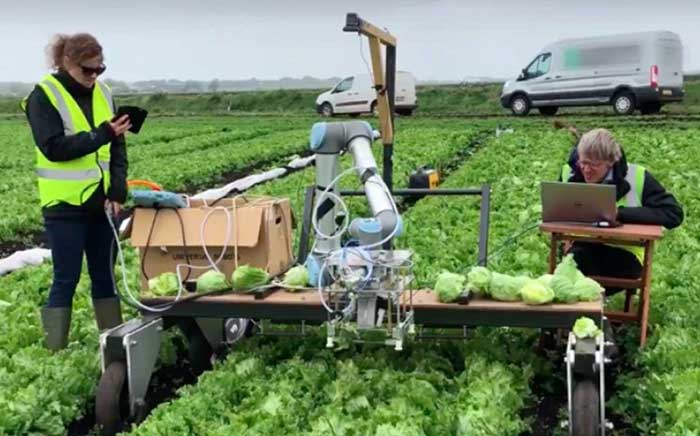In the ever-evolving landscape of agriculture, automation has emerged as a game-changer. From precision farming to smart equipment and data-driven decision-making, automation is transforming the way we cultivate crops and raise livestock. To keep up with these advancements, agricultural education and training are crucial, and this is where Agricultural Automation Workshops and Seminars play a vital role.
Why Automation in Agriculture Education and Training Matters
Agriculture is not what it used to be. The traditional image of farmers toiling in the fields from dawn to dusk is fast becoming a relic of the past. Today’s agriculture is a highly technical and data-driven industry that relies on cutting-edge technology and innovation. To succeed in this new era, farmers and agricultural professionals need to be well-versed in automation and its applications.
Automation in agriculture encompasses a wide range of technologies and practices, including:
Precision Farming: Precision agriculture involves using GPS technology and sensors to optimize the use of resources like water, fertilizers, and pesticides. This not only reduces environmental impact but also maximizes crop yields.
Robotic Farming: Robots are now being used for tasks like planting, harvesting, and weeding. These robots can work tirelessly and with incredible precision, improving efficiency and reducing labor costs.
IoT (Internet of Things) in Agriculture: IoT devices are used to monitor and control various aspects of farming, from soil moisture levels to livestock health. This data-driven approach allows farmers to make informed decisions in real-time.
Drones and Remote Sensing: Drones equipped with cameras and sensors can provide valuable insights into crop health and identify areas that need attention. This technology is particularly useful for large-scale farms.
Machine Learning and AI: Artificial intelligence is used to analyze data collected from various sources, helping farmers make predictions and optimize their operations.
Smart Equipment: Modern tractors, combines, and other farming machinery are equipped with advanced technology, making them more efficient and user-friendly.
Aquaponics and Hydroponics: These soil-less farming techniques rely heavily on automation to control the nutrient levels and environment for plants.
The Role of Workshops and Seminars
Given the rapid pace of change in the agricultural sector, it’s essential for individuals involved in farming and agriculture to stay updated on the latest developments in automation. Workshops and seminars dedicated to agricultural automation serve as valuable platforms for knowledge sharing, skill development, and networking.
- Learning Opportunities: Workshops and seminars offer participants the chance to acquire practical knowledge about the latest automation technologies. Experts in the field often conduct these events, providing insights into best practices and real-world applications.
- Hands-On Experience: Many workshops include hands-on activities and demonstrations. Participants can interact with automated equipment and gain first-hand experience in using these tools.
- Networking: Workshops and seminars bring together professionals, researchers, and enthusiasts in the agricultural automation sector. This creates networking opportunities that can lead to collaborations, partnerships, and the sharing of valuable insights.
- Problem Solving: Participants can bring their specific challenges and questions to these events and get guidance from experts. Problem-solving sessions are a valuable aspect of workshops and seminars.
- Exposure to New Ideas: Automation is a rapidly evolving field. Attending workshops and seminars exposes participants to innovative ideas and emerging trends that can inspire new approaches to farming practices.
Choosing the Right Workshop or Seminar
With the increasing importance of automation in agriculture, the number of workshops and seminars has also grown. To make the most of these opportunities, it’s essential to choose the right event. Here are some factors to consider when selecting a workshop or seminar:
Relevance: Ensure that the event aligns with your specific interests and needs. Some workshops focus on general automation topics, while others may be specialized in areas like drone technology or precision farming.
Expertise: Research the speakers and organizers. Look for events led by experts with a proven track record in the field.
Duration and Format: Consider the duration of the workshop or seminar and whether it fits your schedule. Additionally, assess whether the format, whether in-person or virtual, suits your learning style.
Cost: Evaluate the registration fees and any additional expenses such as travel and accommodation. Some events may offer scholarships or discounts for students and farmers.
Reviews and Testimonials: Seek feedback from past participants to get an idea of the quality and value of the event.
The Future of Agriculture through Automation
As we move further into the 21st century, automation in agriculture will continue to evolve and expand. From autonomous tractors to AI-powered crop management systems, the possibilities are endless. The role of workshops and seminars in this context becomes even more critical.
These educational events not only equip individuals with the skills and knowledge needed to thrive in the modern agricultural landscape but also foster innovation and collaboration. As automation continues to shape the future of farming, participation in agricultural automation workshops and seminars will be a vital step towards a more efficient, sustainable, and productive agriculture sector.
In conclusion, agricultural automation is transforming the way we farm, and staying informed and trained in this field is essential for success. Agricultural Automation Workshops and Seminars offer valuable opportunities for learning, networking, and staying at the forefront of technological advancements in agriculture. Embracing automation in agriculture is not just about staying current; it’s about shaping the future of farming for the better.





